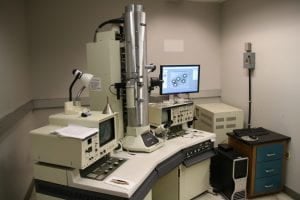Antigens are foreign substances which induce an immune response in the body, especially the production of antibodies. The antibodies then latch on to the foreign substance in an attempt to mark them to be destroyed. This ability to bind to specific molecules makes antigens ideal probes in cell research, where they are used to latch onto, and thus help isolate and identify, molecules of interest in and on cells. Suleman Hussain, a researcher in the lab of Daniel Higginson and Simon Powell at MSK, discovered a novel and efficient way of preparation, fixation, and embedding of tissue for electron microscopy.
His research proved that Antibodies raised against aldehyde-fixed antigens improve sensitivity for post-embedding electron microscopy. To prove their hypothesis, he and his team immunized rabbits with antigen pre-fixed with glutaraldehyde (GA, which is commonly used in electron microscopical investigations). The results were consistent with their hypothesis, thus marking the discovery that will improve future biomedical research in terms of efficiency.
Despite all of his accomplishments, Suleman Hussain has experienced numerous hardships due to his sexuality. Being a member of the LGBTQ community, Hussain had trouble finding himself. He lived in India where homosexuality was criminalized so he kept his true self under covers, hidden from the rest of the world. Hussain grew up Muslim so to this day, his family still doesn’t know that he’s gay or that he’s married. “But I have grown more comfortable and more confident in myself. At this point, if they somehow find out then I’m ready for it.”
The reason why visibility of LGBTQ people in science is so important is because we serve as examples to gay teens, who go through a lot. For them to be inspired to do what they are really capable of, that’s what motivates me to be visible. It’s become much easier now overall than what it was before, but still there are a lot of homeless LGBTQ teens and higher rates of suicide too. So in that sense it’s very important for them to have examples.
-Suleman Hussain



Leave a Reply